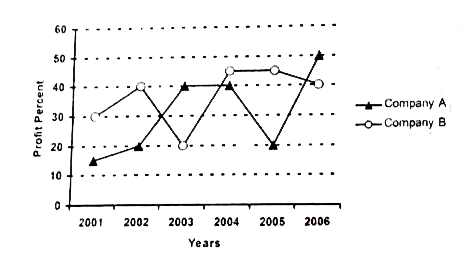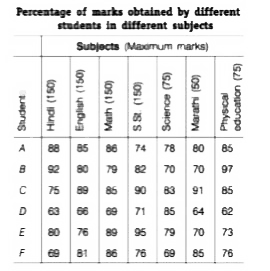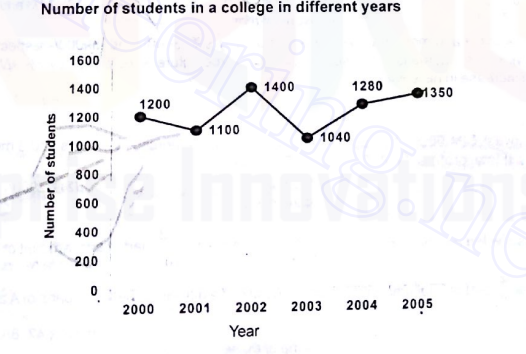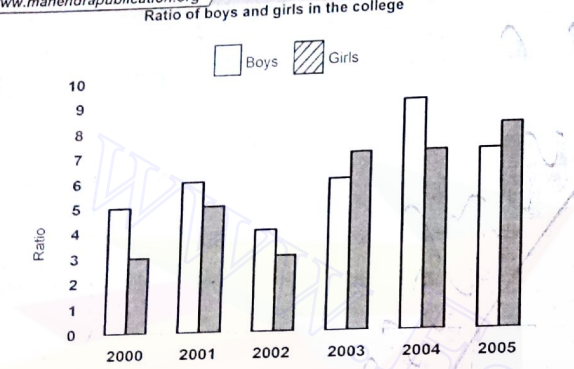Read the following passage carefully, and answer the questions given below it. Certain words are printed in both to help you to locate them while answering some of the questions.
"When this quite unknown young man of thirty appeared in Chicago at the inaugural meeting of the Parliament of Religions, opened in September 1890, by Cardinal Gibbons, all his fellow members were forgotten in his commanding presence. His strength and beauty, the grace and dignity of his bearing, the dark light of his eyes, his imposing appearnace and form the moment he began to speak, the splendid music of his rich voice enthralled the vast audience of American Anglo Saxons, previously prejudiced against him an account of his colour. The thoughts of this warrior prophet of India left a deep mark upon the United States," This is what is described by the great philosopher, Romain Rolland.
Swami Vivekananda was born as Narendranath Dutta, son of a well known lawyer of Calcutta, Biswanath Dutta, and a very intelligent and pious lady, Bhuvaneshwari Devi, in the year 1863. Narendra learnt the epics and puranas from his mother. Narendra was an all rounder. He could sing, was good at sports, had a ready wit, his range of knowledge was extensive, had a rational frame of the mind and he loved to help people.
He was natural Ieader. He was student of philosophy and the story of God very much haunted his mind. It was in Sri Ramakrishna he found his guru. Vivekananda travelled extensively thought India, He was shocked to see the conditions of rural India people ignorant, superstitious, half starved and victims of caste tyranny. It pained Swamiji to see Indians aping western ways and mannerism. Later he would call out the the nation and say, "Feel proud that you are Indians even if you're wearing in loin-cloth".
He was not opposed to learning from the West, for he knew Western people had some great qualities and it was because of those qualities that they had become so rich and powerful. He wanted India to learri science and technology from the West and its power to organize and its practical sense, but, at the same time retain high moral and spiritual idealism.
Which of the follwing qualities of Narendra show that he was fond of Social Service ?
His extensive range of knowledge
His rational frame of mind
His attitude to be useful to others
His knowledge of the epics and Puranas
The correct Answer is:C
Similar Questions
Knowledge Check
Read the following passage carefully, and answer the questions given below it. Certain words are printed in both to help you to locate them while answering some of the questions.
"When this quite unknown young man of thirty appeared in Chicago at the inaugural meeting of the Parliament of Religions, opened in September 1890, by Cardinal Gibbons, all his fellow members were forgotten in his commanding presence. His strength and beauty, the grace and dignity of his bearing, the dark light of his eyes, his imposing appearnace and form the moment he began to speak, the splendid music of his rich voice enthralled the vast audience of American Anglo Saxons, previously prejudiced against him an account of his colour. The thoughts of this warrior prophet of India left a deep mark upon the United States," This is what is described by the great philosopher, Romain Rolland.
Swami Vivekananda was born as Narendranath Dutta, son of a well known lawyer of Calcutta, Biswanath Dutta, and a very intelligent and pious lady, Bhuvaneshwari Devi, in the year 1863. Narendra learnt the epics and puranas from his mother. Narendra was an all rounder. He could sing, was good at sports, had a ready wit, his range of knowledge was extensive, had a rational frame of the mind and he loved to help people.
He was natural Ieader. He was student of philosophy and the story of God very much haunted his mind. It was in Sri Ramakrishna he found his guru. Vivekananda travelled extensively thought India, He was shocked to see the conditions of rural India people ignorant, superstitious, half starved and victims of caste tyranny. It pained Swamiji to see Indians aping western ways and mannerism. Later he would call out the the nation and say, "Feel proud that you are Indians even if you're wearing in loin-cloth".
He was not opposed to learning from the West, for he knew Western people had some great qualities and it was because of those qualities that they had become so rich and powerful. He wanted India to learri science and technology from the West and its power to organize and its practical sense, but, at the same time retain high moral and spiritual idealism.
Which the following according to Romain Rolland, was the impact of Vivekanada's speech Chicago on his audience?"AThe audiences were so impressed that they forgot all other speakers.BThe audience developed a bad, opinion about him because of his colourCThe commanding presence of the audience had inspired himDThe audience impressed him with their keen attentionRead the following passage carefully, and answer the questions given below it. Certain words are printed in both to help you to locate them while answering some of the questions.
"When this quite unknown young man of thirty appeared in Chicago at the inaugural meeting of the Parliament of Religions, opened in September 1890, by Cardinal Gibbons, all his fellow members were forgotten in his commanding presence. His strength and beauty, the grace and dignity of his bearing, the dark light of his eyes, his imposing appearnace and form the moment he began to speak, the splendid music of his rich voice enthralled the vast audience of American Anglo Saxons, previously prejudiced against him an account of his colour. The thoughts of this warrior prophet of India left a deep mark upon the United States," This is what is described by the great philosopher, Romain Rolland.
Swami Vivekananda was born as Narendranath Dutta, son of a well known lawyer of Calcutta, Biswanath Dutta, and a very intelligent and pious lady, Bhuvaneshwari Devi, in the year 1863. Narendra learnt the epics and puranas from his mother. Narendra was an all rounder. He could sing, was good at sports, had a ready wit, his range of knowledge was extensive, had a rational frame of the mind and he loved to help people.
He was natural Ieader. He was student of philosophy and the story of God very much haunted his mind. It was in Sri Ramakrishna he found his guru. Vivekananda travelled extensively thought India, He was shocked to see the conditions of rural India people ignorant, superstitious, half starved and victims of caste tyranny. It pained Swamiji to see Indians aping western ways and mannerism. Later he would call out the the nation and say, "Feel proud that you are Indians even if you're wearing in loin-cloth".
He was not opposed to learning from the West, for he knew Western people had some great qualities and it was because of those qualities that they had become so rich and powerful. He wanted India to learri science and technology from the West and its power to organize and its practical sense, but, at the same time retain high moral and spiritual idealism.
Which of the following aspects of Vivekanada impressed the US audience at Chicago the most?"AHis imposing appearanceBHis strength and beautyCHis grace and dignityDThe contents of his speechRead the following passage carefully, and answer the questions given below it. Certain words are printed in both to help you to locate them while answering some of the questions.
"When this quite unknown young man of thirty appeared in Chicago at the inaugural meeting of the Parliament of Religions, opened in September 1890, by Cardinal Gibbons, all his fellow members were forgotten in his commanding presence. His strength and beauty, the grace and dignity of his bearing, the dark light of his eyes, his imposing appearnace and form the moment he began to speak, the splendid music of his rich voice enthralled the vast audience of American Anglo Saxons, previously prejudiced against him an account of his colour. The thoughts of this warrior prophet of India left a deep mark upon the United States," This is what is described by the great philosopher, Romain Rolland.
Swami Vivekananda was born as Narendranath Dutta, son of a well known lawyer of Calcutta, Biswanath Dutta, and a very intelligent and pious lady, Bhuvaneshwari Devi, in the year 1863. Narendra learnt the epics and puranas from his mother. Narendra was an all rounder. He could sing, was good at sports, had a ready wit, his range of knowledge was extensive, had a rational frame of the mind and he loved to help people.
He was natural Ieader. He was student of philosophy and the story of God very much haunted his mind. It was in Sri Ramakrishna he found his guru. Vivekananda travelled extensively thought India, He was shocked to see the conditions of rural India people ignorant, superstitious, half starved and victims of caste tyranny. It pained Swamiji to see Indians aping western ways and mannerism. Later he would call out the the nation and say, "Feel proud that you are Indians even if you're wearing in loin-cloth".
He was not opposed to learning from the West, for he knew Western people had some great qualities and it was because of those qualities that they had become so rich and powerful. He wanted India to learri science and technology from the West and its power to organize and its practical sense, but, at the same time retain high moral and spiritual idealism.
Narendra learnt the religious 'scriptures fromAhis Guru-Sri RamakrishnaBBiswanath DuttaCCardinal GibbonsDBhuvaneswari Devi
Study the following table carefully to answer the questions given below.

The total marks obtained by 'A' in all the subjects together is :
View SolutionRead the following graph carefully and answer the questions given below.

In which year the average of the profit percent of the both companies was the maximum ?
View SolutionRead the following passage carefully, and answer the questions given below it. Certain words are printed in both to help you to locate them while answering some of the questions.
"When this quite unknown young man of thirty appeared in Chicago at the inaugural meeting of the Parliament of Religions, opened in September 1890, by Cardinal Gibbons, all his fellow members were forgotten in his commanding presence. His strength and beauty, the grace and dignity of his bearing, the dark light of his eyes, his imposing appearnace and form the moment he began to speak, the splendid music of his rich voice enthralled the vast audience of American Anglo Saxons, previously prejudiced against him an account of his colour. The thoughts of this warrior prophet of India left a deep mark upon the United States," This is what is described by the great philosopher, Romain Rolland.
Swami Vivekananda was born as Narendranath Dutta, son of a well known lawyer of Calcutta, Biswanath Dutta, and a very intelligent and pious lady, Bhuvaneshwari Devi, in the year 1863. Narendra learnt the epics and puranas from his mother. Narendra was an all rounder. He could sing, was good at sports, had a ready wit, his range of knowledge was extensive, had a rational frame of the mind and he loved to help people.
He was natural Ieader. He was student of philosophy and the story of God very much haunted his mind. It was in Sri Ramakrishna he found his guru. Vivekananda travelled extensively thought India, He was shocked to see the conditions of rural India people ignorant, superstitious, half starved and victims of caste tyranny. It pained Swamiji to see Indians aping western ways and mannerism. Later he would call out the the nation and say, "Feel proud that you are Indians even if you're wearing in loin-cloth".
He was not opposed to learning from the West, for he knew Western people had some great qualities and it was because of those qualities that they had become so rich and powerful. He wanted India to learri science and technology from the West and its power to organize and its practical sense, but, at the same time retain high moral and spiritual idealism.
Vivekananda had desired that Indian should
(1) stick to their moral and idealism at the cost of scientific advancements.
(2) nuture their spiritual idealism and imbibe science and technology
(3) retain their moral and spiritual standard and learn the West's practical sense.
View SolutionRead the following passage carefully, and answer the questions given below it. Certain words are printed in both to help you to locate them while answering some of the questions.
"When this quite unknown young man of thirty appeared in Chicago at the inaugural meeting of the Parliament of Religions, opened in September 1890, by Cardinal Gibbons, all his fellow members were forgotten in his commanding presence. His strength and beauty, the grace and dignity of his bearing, the dark light of his eyes, his imposing appearnace and form the moment he began to speak, the splendid music of his rich voice enthralled the vast audience of American Anglo Saxons, previously prejudiced against him an account of his colour. The thoughts of this warrior prophet of India left a deep mark upon the United States," This is what is described by the great philosopher, Romain Rolland.
Swami Vivekananda was born as Narendranath Dutta, son of a well known lawyer of Calcutta, Biswanath Dutta, and a very intelligent and pious lady, Bhuvaneshwari Devi, in the year 1863. Narendra learnt the epics and puranas from his mother. Narendra was an all rounder. He could sing, was good at sports, had a ready wit, his range of knowledge was extensive, had a rational frame of the mind and he loved to help people.
He was natural Ieader. He was student of philosophy and the story of God very much haunted his mind. It was in Sri Ramakrishna he found his guru. Vivekananda travelled extensively thought India, He was shocked to see the conditions of rural India people ignorant, superstitious, half starved and victims of caste tyranny. It pained Swamiji to see Indians aping western ways and mannerism. Later he would call out the the nation and say, "Feel proud that you are Indians even if you're wearing in loin-cloth".
He was not opposed to learning from the West, for he knew Western people had some great qualities and it was because of those qualities that they had become so rich and powerful. He wanted India to learri science and technology from the West and its power to organize and its practical sense, but, at the same time retain high moral and spiritual idealism.
Vivekanada was grieved because of
(1) Absence of knoweldge and awareness among the rural folks
(2) Lack of resources available with the rural folks to feed themselves
(3) Irrational and unreasoning beliefs nurtured by the rural folks
View SolutionStudy the following table carefully and answer the questions given below.

Who has scored the highest marks in all the subjects together?
View Solution


